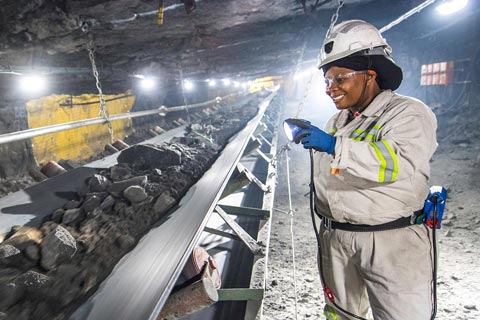 On November 6, Sibanye-Stillwater has concluded a five-year wage agreement with all representative unions, comprising the Association of Mineworkers and Construction Union (AMCU) and the National Union of Mineworkers (the NUM) in respect of annual wages and benefits for employees at the Kroondal platinum group metals (PGM) operations.
On November 6, Sibanye-Stillwater has concluded a five-year wage agreement with all representative unions, comprising the Association of Mineworkers and Construction Union (AMCU) and the National Union of Mineworkers (the NUM) in respect of annual wages and benefits for employees at the Kroondal platinum group metals (PGM) operations.
“We are pleased to have concluded this five-year inflation-linked wage agreement, which follows the agreements we reached at our Rustenburg and Marikana operations in 2022, in a constructive manner and without any disruption,” said Neal Froneman, CEO, Sibanye-Stillwater. “The agreement secures wage stability in the operations which will benefit all stakeholders.”
Similar to the terms and increases reached at the company’s Rustenburg and Marikana operations during 2022, the agreement is inflation-linked, with category 4-8 employees receiving an increase of a minimum of 6% in each of the five-years of the agreement. Miners, artisans and officials will receive an increase of 6% in each year of the five-year agreement. The estimated average increase in the total wage bill, including all benefits, over the five-year period is approximately 6.4% per annum.
The announcement came shortly after Sibanye-Stillwater announced it had assumed full ownership of Kroondal. On November 1, 2023, the company the purchased Rustenburg Platinum Mines Ltd.’s (RPM) a subsidiary of Anglo 50% share in the Kroondal pool and share agreement (Kroondal PSA), assuming full ownership of the low cost, mechanized Kroondal operation.
“Concluding the transaction earlier enables effective consolidation of these operations under a single owner,” Froneman said. “By extending the operating life of the Kroondal operation, which as a standalone operation was constrained by the existing PSA agreement. We are now able to realize the true potential of our adjacent resources by utilizing the mechanized and low-cost Kroondal operation to mine across the boundary with the Rustenburg operation. This will accelerate the extraction of more remote parts of the Rustenburg operation orebody, expected to sustain employment for thousands of employees until 2029.”






